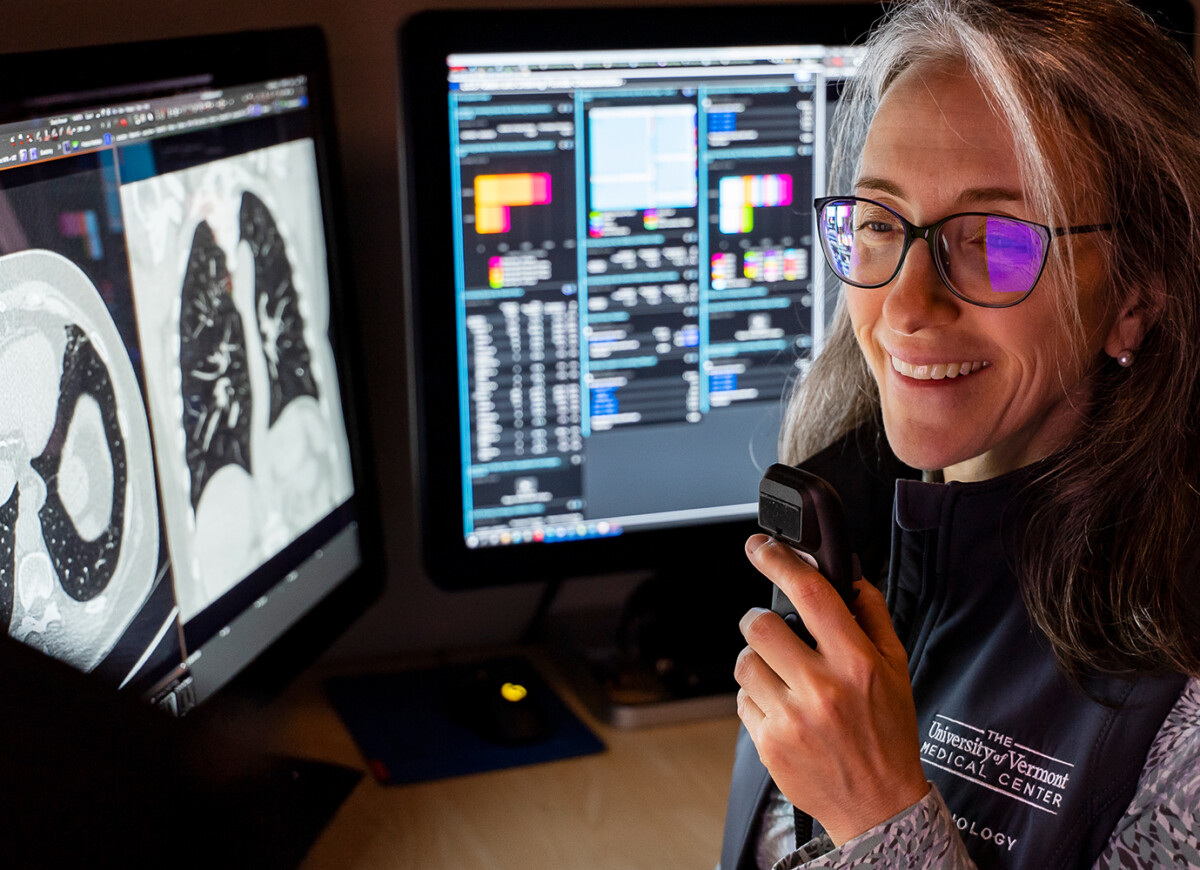No Other Technology Has Resulted in Such an Immediate Positive Impact

Abridge, a technology for clinicians powered by artificial intelligence, will soon be used across University of Vermont Health Network’s outpatient sites, starting with primary care.
The average person can type about 50 words a minute. Abridge, a technology that uses artificial intelligence to record, with a patient’s consent, conversations between patients and their health care providers, can do that much in the blink of an eye, and it can turn what it’s hearing into an organized set of notes almost instantaneously. That leaves a lot more time for your provider to focus on you and get deeper into the details of what you need.
This is why University of Vermont Health Network has decided to start using the technology at its outpatient sites, starting with primary care before expanding to cardiology and endocrinology. The primary care rollout is scheduled for the summer of 2024 with the goal of completing it by the end of September.
“Ambient technology, technology that’s built into the environment and responds to human direction, is a game changer in how it improves the experience of both practicing and receiving health care: We have seen ambient help our providers be present and our patients be heard,” says Justin Stinnett-Donnelly, MD, UVM Health Network associate chief medical information officer.
No other technology has resulted in such an immediate positive impact.
Justin Stinnett-Donnelly, MD, UVM Health Network associate chief medical information officer.
The technology was chosen after an 8-week pilot program conducted by 50 physicians and advance practice providers and led by Dr. Stinnett-Donnelly.
Feedback collected anonymously from the pilot suggests that patients appreciate having providers who aren’t tied to a keyboard or iPad screen. It helps them feel more connected, and it improves the flow of communication. For older patients, it’s a welcome return to a time when technology didn’t get in between them and their providers. For younger patients, it’s a refreshing change of pace.
Clinical documentation is an important but time-consuming part of medical care. It’s how patients’ histories are recorded and what allows clinicians at different sites to collaborate on care. But providers across the country report that their workdays are frequently dominated by their notetaking responsibilities, and because they are unwilling to compromise on care, this often means that they’re forced to complete their notes after hours.
Prior to the pilot, there were days when I would have such complex or verbose patients on my schedule that I would end my day with literally only one or two notes done. Now, with this technology, I have the bulk of the notes written.
Jennifer Gilwee, MD, division chief of adult primary care medicine at UVM Medical Center.
Dr. Gilwee isn’t alone in enjoying the time-saving benefits of the AI notetaking program. Participants in the pilot program reported a 60% decrease in time spent on documenting patient encounters thanks to the help of the technology.
For many, the burden of unassisted notetaking leads to burnout, a reaction to persistent and severe stress that can manifest as exhaustion and depression. Burnout is commonly cited as a contributing factor in the ongoing national physician shortage that is making recruitment difficult.
One of the main reasons the technology is so promising is its reported effect on burnout. There was a 46% improvement in terms of burnout among pilot program participants. Less burnout means more job satisfaction. Professional fulfillment for participants increased by 53% based on the Stanford Professional Fulfillment Index.
It has a similarly positive effect on cognitive load, a term from psychology that refers to the amount of brain space an activity requires. Participating clinicians reported a drop of 51%. Imagine how helpful having 50% more brain space would be.
“Abridge is the first thing I’ve seen that improves provider wellness and relieves cognitive load, allowing me to be fully present with my patient,” says Alicia Jacobs, MD, a family medicine physician in Colchester, Vermont.
There is no single solution to the challenges associated with practicing medicine in the contemporary world. But tools like this, which effectively address one area of stress, can – bit by bit – benefit our providers and patients and create potential for even greater strides in the future.
